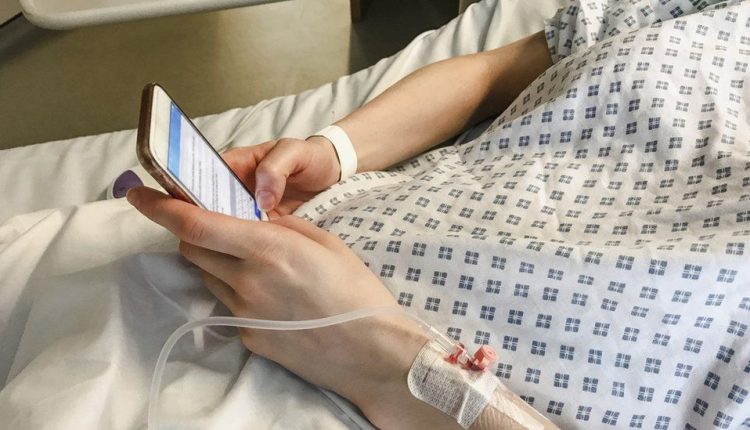Hospitals in England can relax Covid rules to treat more patients
Hospitals in England have been given the green light to ease some of the Covid infection-control measures that have been in place during the pandemic.
The changes, recommended by the UK Health Security Agency (UKHSA), are aimed at easing pressure on the NHS.
It says testing and isolating patients before planned operations can be dropped and hospitals can return to normal cleaning procedures.
Social distancing can also be reduced from 2m (6ft) to 1m in some areas.
More than five million people are waiting for NHS hospital treatment in England and hundreds of thousands have been waiting more than a year.
Although the government has announced an extra £5.4bn over the next six months to respond to the backlog caused by the pandemic, ministers have warned waiting lists could get worse before they get better, as more people come forward.
- Cancer backlog may take over decade to clear
- NHS to get extra to deal with Covid backlog
- The NHS Covid legacy – long waits and lives at risk
“Enhanced cleaning is common in healthcare settings which are exposed to influenza patients so it seems that penny pinching by removal of enhanced hygiene measures may well lead to transmission of Covd-19 and other infections in our hospitals.”
UKHSA chief executive Dr Jenny Harries said the new recommendations would help local hospitals plan more elective care.
“This is a first step to help the NHS treat more patients more quickly, while ensuring their safety and balancing their different needs for care,” she said.
Health and Social Care Secretary Sajid Javid said: “As ever more people benefit from the protection of our phenomenal vaccination campaign, we can now safely begin to relieve some of the most stringent infection controls where they are no longer necessary, to benefit patients and ease the burden on hardworking NHS staff.”

image source, Getty Images
Three recommendations relate to elective care in NHS and social care:
- physical distancing can be lowered to 1m where patients numbers can be controlled – not in accident and emergency departments – in line with advice from the World Health Organization
- certain patients no longer need to test and isolate before surgery – those in low-risk groups, who are fully-vaccinated, experiencing no symptoms and with a negative lateral-flow test on the day of their procedure, as long as they are not close contacts of a confirmed case
- hospitals can return to standard rather than enhanced cleaning procedures between patients in low-risk areas, with the focus to be on hand hygiene to reduce transmission
Local hospitals will be left to decide when and how these changes are introduced.
Guidance on which measures can be relaxed in GP surgeries, dentists and for ambulance trusts are still being considered.
The recommendations were based on reviews of evidence and broad agreement from experts in infection prevention and control, the UKHSA said.
‘Penny pinching’
Dr Simon Clarke, associate professor in cellular microbiology, from the University of Reading, said the recommendations seemed “reasonable” but there would be some patients with false negative test results who could end up on wards with vulnerable patients.
And he said it was “corner cutting” to remove enhanced cleaning measures in hospitals.
“Enhanced cleaning is common in healthcare settings which are exposed to influenza patients so it seems that penny pinching by removal of enhanced hygiene measures may well lead to transmission of Covd-19 and other infections in our hospitals,” Dr Clarke said.
Hospitals should continue to follow current guidance on the wearing of personal protective equipment (PPE), the UK Health Security Agency advised.


Comments are closed.